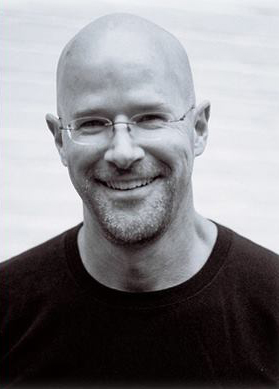Interview with Modern Love editor Dan Jones
November 30, 2015

Dan Jones is the editor of Modern Love, a weekly New York Times column that features personal narratives from people grappling with the concept of love. WSN chatted with Jones about the evolution of modern love, how we understand it and what it means to college students.
WSN: What do you think the role of the Modern Love column is?
Dan Jones: I think we learn through storytelling, and because these are all real stories that are very emotional, there’s always a problem and a conflict in them. I think that people identify with that, and they appreciate hearing how someone has come through something and what they’ve learned from it.
WSN: Do you think that there’s a way to define modern love, and if there is, has that changed over time?
DJ: I think one change that’s happened is that we have more ways that we can try to not show our vulnerabilities. Technology is just a tool, it’s not bad or good by itself. If you’re the kind of person who doesn’t want to show your cards or doesn’t want to show your feelings, I think it can sort of help people avoid confronting their feelings. But there are two sides to it. People have these very deep, electronic-only relationships where they feel like they can confess anything online as long as they’re behind that screen.
WSN: Do you think that college students have a more naive viewpoint about love?
DJ: I would never generalize to that degree. We’ve had three college contests now over seven years, and what I find interesting and kind of refreshing is that college students seem to have these highly romantic notions about how their lives should play out, but they’re also really deeply cynical. They think it’s never going to happen that way. So those two things are kind of hard to reconcile. How you can have really romantic ideals but also never believe that’s going to happen on some level? And I’m not sure why that’s spread so wide, but in so many of these essays, people talk so much of the coarseness of the hookup culture, and all of that. In some of these essays, people are desperate for real emotional connections. So I don’t think that’s naivete really, I think there’s some sort of split between what we want and what we feel like we can get.
WSN: How has the column impacted your life?
DJ: I’ve been married for decades. I think the first impulse for so many people is to be judgemental. I see that in response to columns, stories, where people are confessing being confused, or not being able to figure out their love lives. It’s complicated. To try to simplify it into a set of rules or some sort of judgement is naive. I really appreciate the complexities of relationships and what people go through, and I feel very empathetic toward people going through
those difficulties.
WSN: I think that it’s really difficult to define what modern love is, especially at a college age. Would you agree that the function of the column is to broaden people’s perspectives about love?
DJ: A lot of readers like to read about their own lives and their own situations, but I really like to read more about people’s lives who are not like mine, and I’m really curious about these strange situations that people find themselves in, and the hard choices they face. So I feel like the extent of the column represents broad experience due to that curiosity of mind, of really wanting to hear it all.
